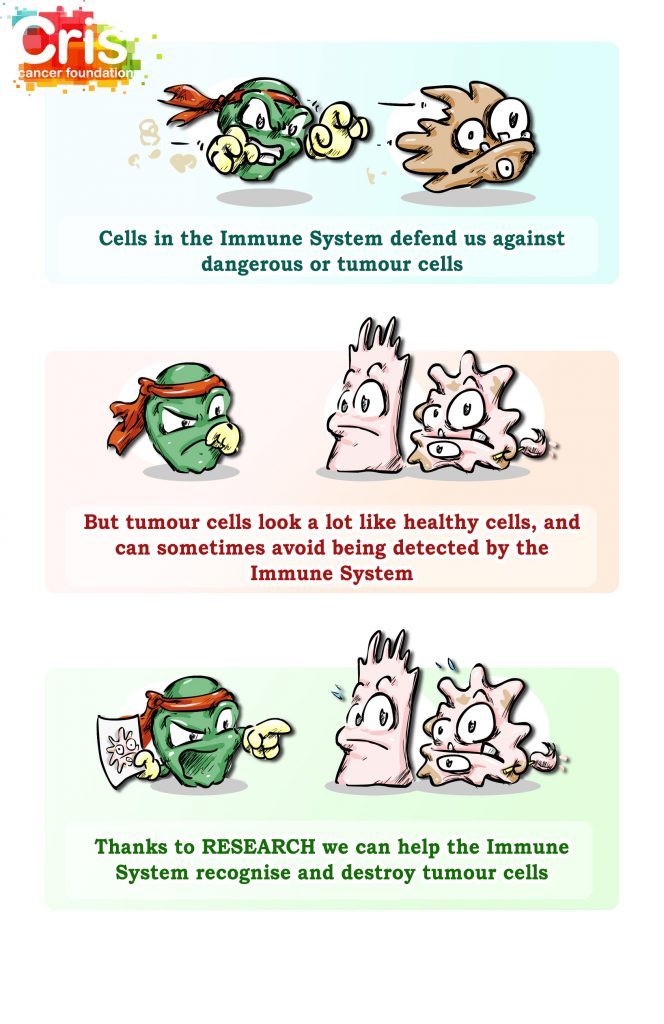Niño Jesús Children’s Hospital, CNIO (Spanish National Cancer Research Centre), La Paz University Hospital in Madrid, St. Jude Children’s Hospital, Memphis, EEUU.
Background:
Tumour cells appear when normal cells, after accumulating alterations every time they multiply, manage to evade the body’s control mechanisms, which control when, how and where cells must multiply. It is not easy for the immune system to distinguish between healthy and tumour cells, as they are very similar. This is why, on many occasions, tumour cells are not detected by the immune system.
The goal of this Investigation is to help the cells in the immune system to identify and destroy tumour cells.
Project Description:
NK (Natural Killer) cells are very efficient in destroying damaged, altered or tumour cells. These cells patrol the body, eliminating any cell that may involve a danger.
n the clinical trials led by Antonio Pérez, NK cells are being extracted from suitable donors, activated to make them more efficient and multiplied in order to inject large quantities of these cells in children suffering from cancer (such as in Project Lydia LINK). The safety of this therapy has been demonstrated in multiple clinical trials. Currently, the effectiveness of the therapy is being optimised, as there is still a lot of room for improvement, and one of the objectives of this group is to improve effectiveness.
Antonio Pérez’s laboratory is working to introduce in Natural Killer cells certain molecules that allow them to be more effective in recognising the cells to be eliminated. They are also working to introduce these molecules in another type of cell that is very efficient in destroying tumour cells, called memory T cells. This type of groundbreaking approximation is called CAR (Chimeric Antigen Receptor) and has a direct application in clinical trials.

Achievements in the past year:
Work on this front has resulted in a series of very relevant publications, as the CAR therapeutic strategy is currently one of the most promising. An article relating to CAR and memory cells is currently pending an evaluation at a high-impact scientific magazine.
The group headed by Antonio Pérez has recently been submitted to external evaluation and has been promoted to the category of a Consolidated group, reflecting the group’s promising track record and the results of their research.